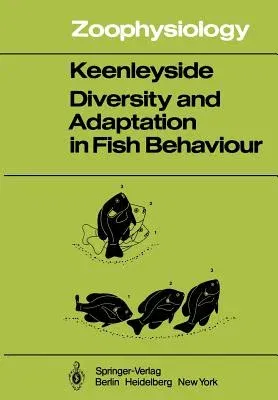Miles H a Keenleyside
(Author)Diversity and Adaptation in Fish Behaviour (Softcover Reprint of the Original 1st 1979)Paperback - Softcover Reprint of the Original 1st 1979, 4 January 2012

Qty
1
Turbo
Ships in 2 - 3 days
In Stock
Free Delivery
Cash on Delivery
15 Days
Free Returns
Secure Checkout
Part of Series
Zoophysiology
Print Length
210 pages
Language
English
Publisher
Springer
Date Published
4 Jan 2012
ISBN-10
3642813763
ISBN-13
9783642813764
Description
Product Details
Author:
Book Edition:
Softcover Reprint of the Original 1st 1979
Book Format:
Paperback
Country of Origin:
NL
Date Published:
4 January 2012
Dimensions:
24.41 x
16.99 x
1.22 cm
ISBN-10:
3642813763
ISBN-13:
9783642813764
Language:
English
Location:
Berlin, Heidelberg
Pages:
210
Publisher:
Series:
Weight:
371.95 gm

